After a stray bullet altered Amanda Parezo’s life forever, the occupational therapist is pushing to make Philadelphia more accessible for all
Paralyzed by a random 2021 shooting, Amanda Parezo has turned trauma into action — fighting for accessibility and for survivors like her.
Listen 5:30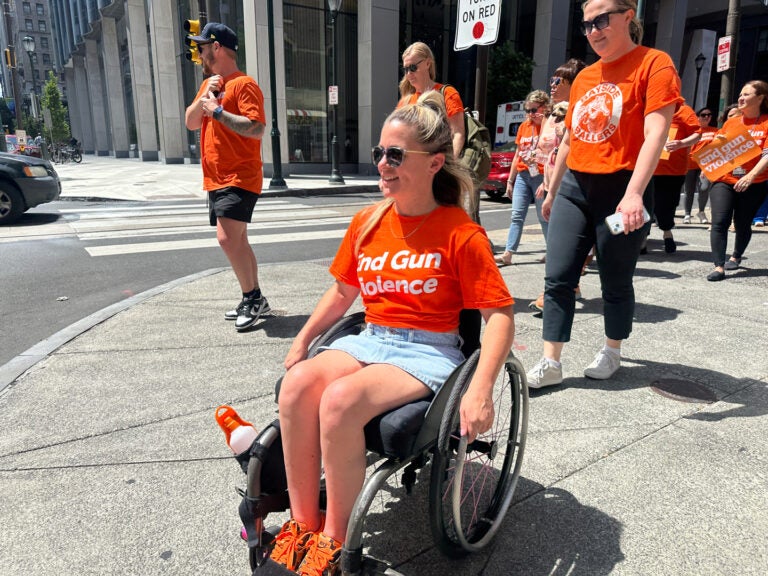
Amanda Parezo at Jefferson Health Gun Violence Awareness Walk & Roll June 2024 .(Photo Provided by Jefferson Health)
Amanda Parezo has devoted her days to helping people piece their lives back together.
“Occupational therapists help people regain their independence,” she said. “We focus on self-care, dressing, bathing — basic everyday things, to even more complex tasks, like money management. It’s really helping individuals get their life back.”
A life built on helping others
Originally from New Jersey, Parezo moved to Philadelphia over 15 years ago and found purpose and community here. She earned her doctorate in occupational therapy from Thomas Jefferson University, then stayed to teach — guiding future therapists while continuing to support patients on their road to recovery.
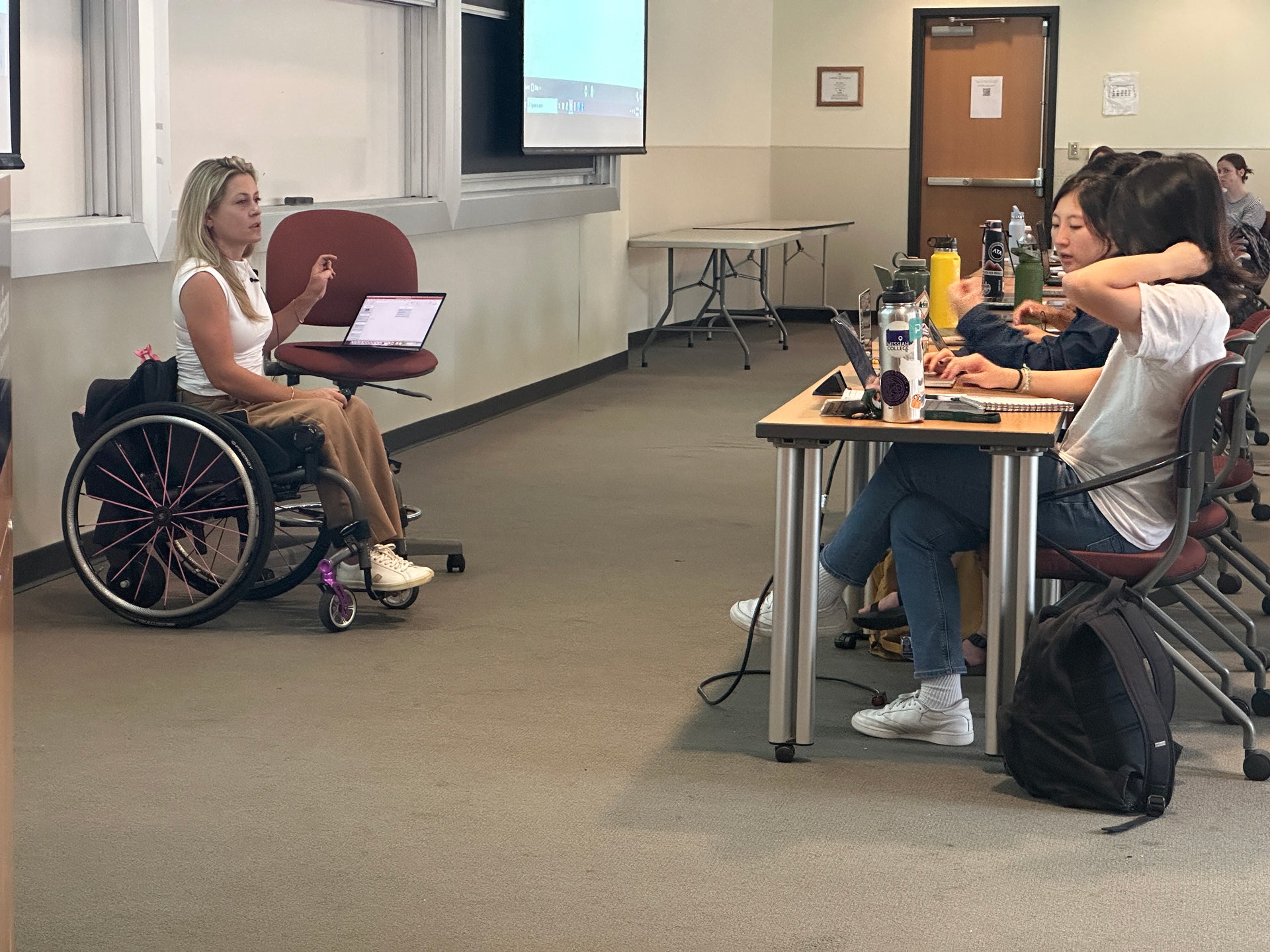
“I’ve made a really great connection with this city,” she said. “With the faculty at Jefferson, and the close friendships I’ve made here, through work and even through my kickball league.”
An ordinary night that changed everything
For Parezo, kickball was a release and a way to unwind after long days in the clinic.
“I wasn’t that athletic girl,” Parezo laughs. “I didn’t run the mile in school; I walked half of it. But I loved the camaraderie, especially with the women on the team.”
On May 19, 2021, after finishing a game at Hancock Playground in East Kensington, Parezo and her teammates stayed on the field, joking about weekend plans. Then Parezo said she heard three loud bangs.
“We all knew exactly what that was,” she said.
A stray bullet struck her in the back, cutting through the night and leaving her with life-altering injuries.
“I just felt a sting on my right side,” she recalls, softly. “Numbness swept from my waist down into my toes.”
The bullet shattered ribs, destroyed her spleen, tore her diaphragm and severed part of her spine. Because of her medical background, Parezo knew immediately what that meant: she might never walk again.
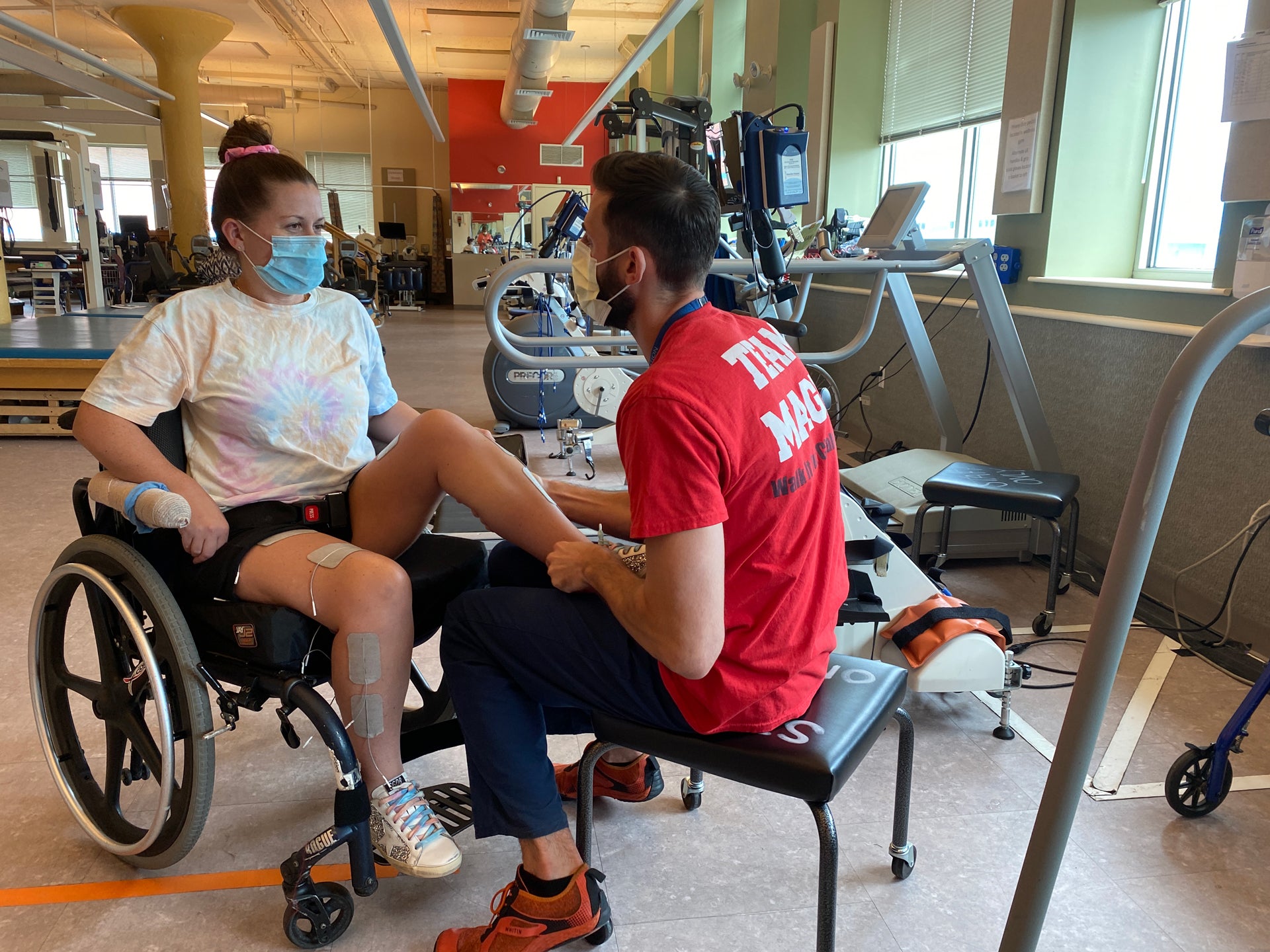
As she recovered from her injuries, she also faced the unraveling of her marriage.
“Looking back, there were signs something bad was going to happen,” she said. “But I didn’t pick up on them.”
During months in rehabilitation, the separation deepened into divorce — another layer of loss she had to process while rebuilding her life.
Police have never identified the shooter, and Parezo said she has long accepted that justice may never come.
“It’s not something that keeps me up at night,” she said. “I don’t have any hope — and it doesn’t matter either way. It doesn’t change anything about what’s going on with me.”
Alexandra Hackett, a communications manager at Jefferson Health, met Parezo just weeks after the shooting.
“She was at a playground playing kickball with her friends and was hit by a stray bullet,” Hackett said. “You can’t meet Amanda and not be affected by her. She’s one of the most remarkable women I’ve ever met.”
Hackett was assigned to document Parezo’s rehabilitation.
“It would be so easy to be consumed by devastation,” she said. “But somehow she dealt with that and still found ways to help other people. She’s always been a fighter — reclaiming her power, not letting this incident take who she is.”
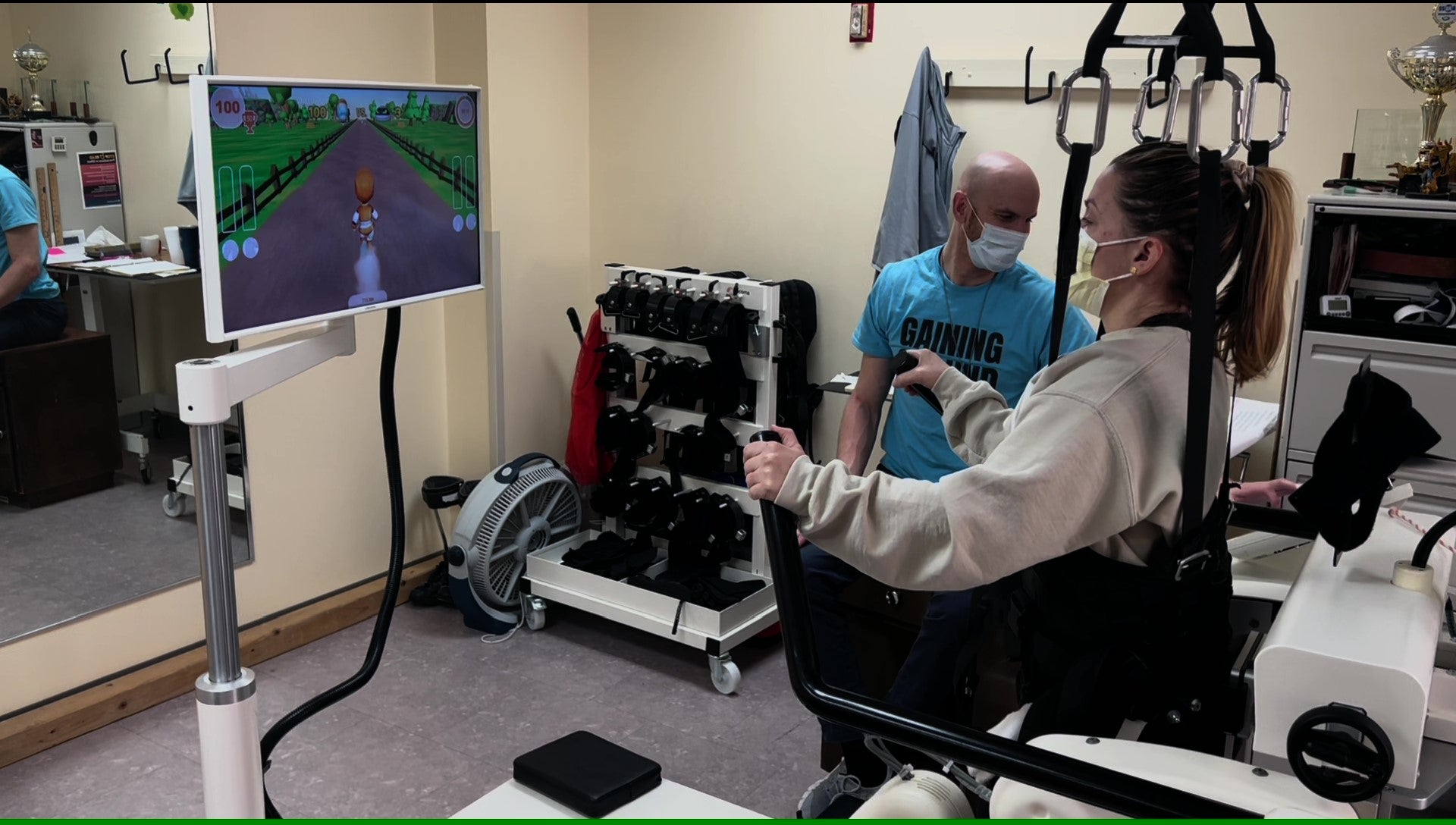
At Jefferson’s Magee rehab, Parezo worked relentlessly.
“I put on a brave face for the therapists,” she said. “I cried a ton in art therapy. I was extremely depressed. But I kept going.”
Her background as an occupational therapist became her anchor.
“It helped me feel hopeful,” she said. “I’d seen my own patients surpass goals they never thought possible.”
She returned to teaching just months after the shooting. Now, she draws on her own recovery to better prepare future therapists.
“I quiz my students, give them real-life examples,” she says. “It’s not just a textbook or a video — they see it firsthand.”
Turning pain into purpose
Life with a spinal cord injury comes with daily challenges.
“I wake up in pain, open my eyes in pain,” Parezo said. “But you find ways to keep moving.”
She modified her Old City apartment to fit her wheelchair — widening doors, adding adaptive equipment and learning new ways to navigate. She found purpose again through her cat, Frank, and a community that rallied around her.
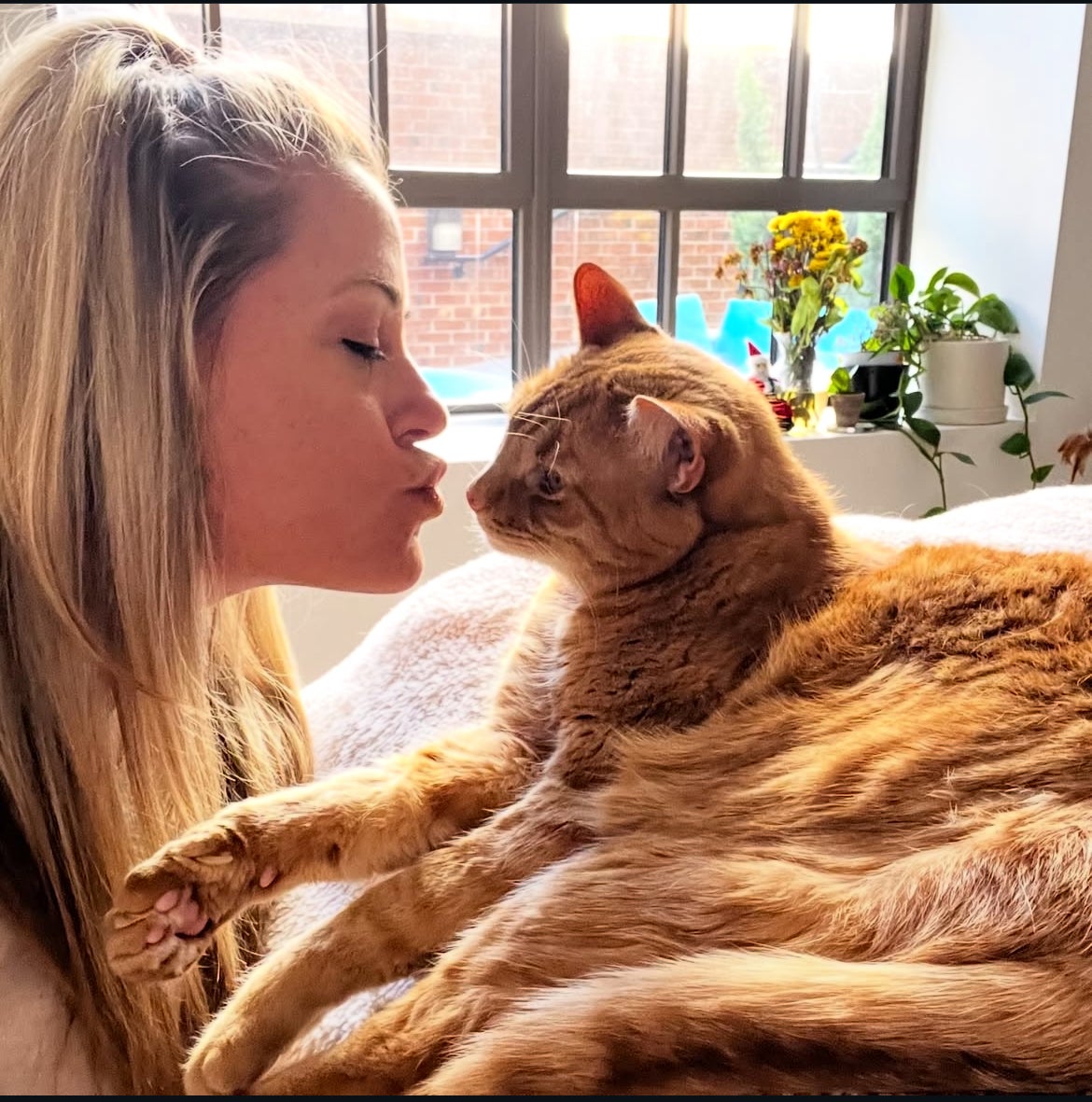
“Frank saves me every day,” she said, smiling.
Another unexpected outlet helped her regain joy: wheelchair tennis.
“I play wheelchair tennis and it keeps my mind busy,” she said. “When I’m on the court, the pain is still there, but it’s not in the forefront of my mind. I’m focused on the serve, the score — just being present. It’s the one place where I can breathe.”
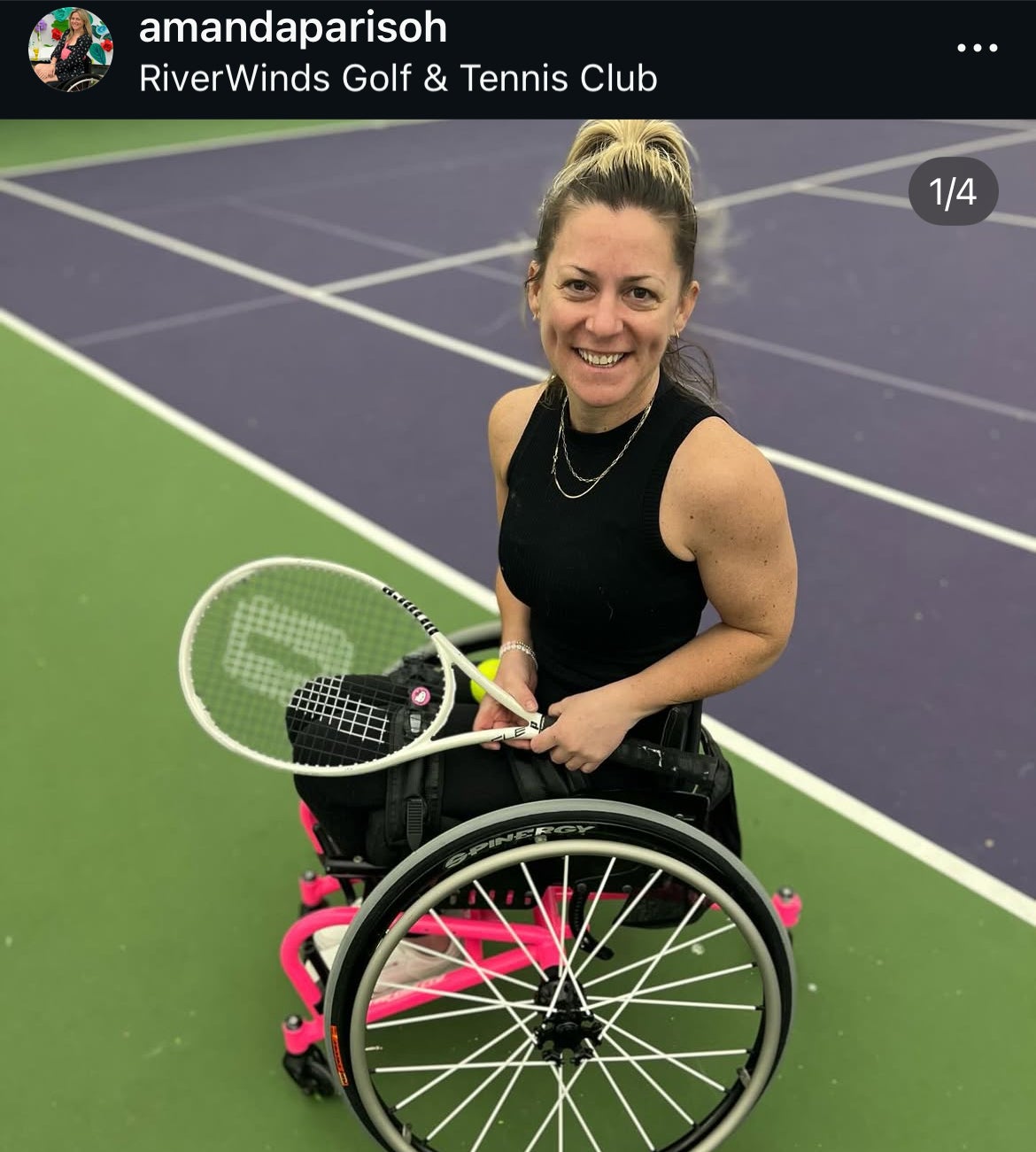
Advocating for accessibility — one ramp, one sticker at a time
Still, one obstacle remains: the city itself. Philadelphia’s cracked sidewalks, narrow doorways and stairs at shop entrances made independence hard to reach. Parezo decided to speak up.
“I’ve fallen out of my chair more times than I’d like to admit,” she said. “Something as simple as a sidewalk crack can ruin someone’s day.”
So she began pushing for change — starting with her own neighborhood.
“A lot of stores and restaurants in Old City aren’t accessible. They might have steps to get in or bathrooms that aren’t wide enough. Everyone deserves access,” Parezo said.
Using social media, she created “Amanda’s Army,” a growing network of supporters advocating for accessibility and inclusion. Her advocacy and informational videos get hundreds of likes and thousands of views online.
@amandaotd Fly with me to LA ✈️ #spinalcordinjury #scirecovery #sci #occupationaltherapy #physicaltherapy #ot #pt #airplanemode @American Airlines ♬ Fly – Nicki Minaj
“I’ve learned that the general public has no clue,” she said. “I don’t blame them — they just haven’t been taught to see it.”
Now she’s developing a simple but powerful idea: stickers to mark which businesses are accessible — and which still have work to do.
Parezo said the goal isn’t to shame businesses that aren’t in compliance but, “to help people understand what real accessibility looks like.”
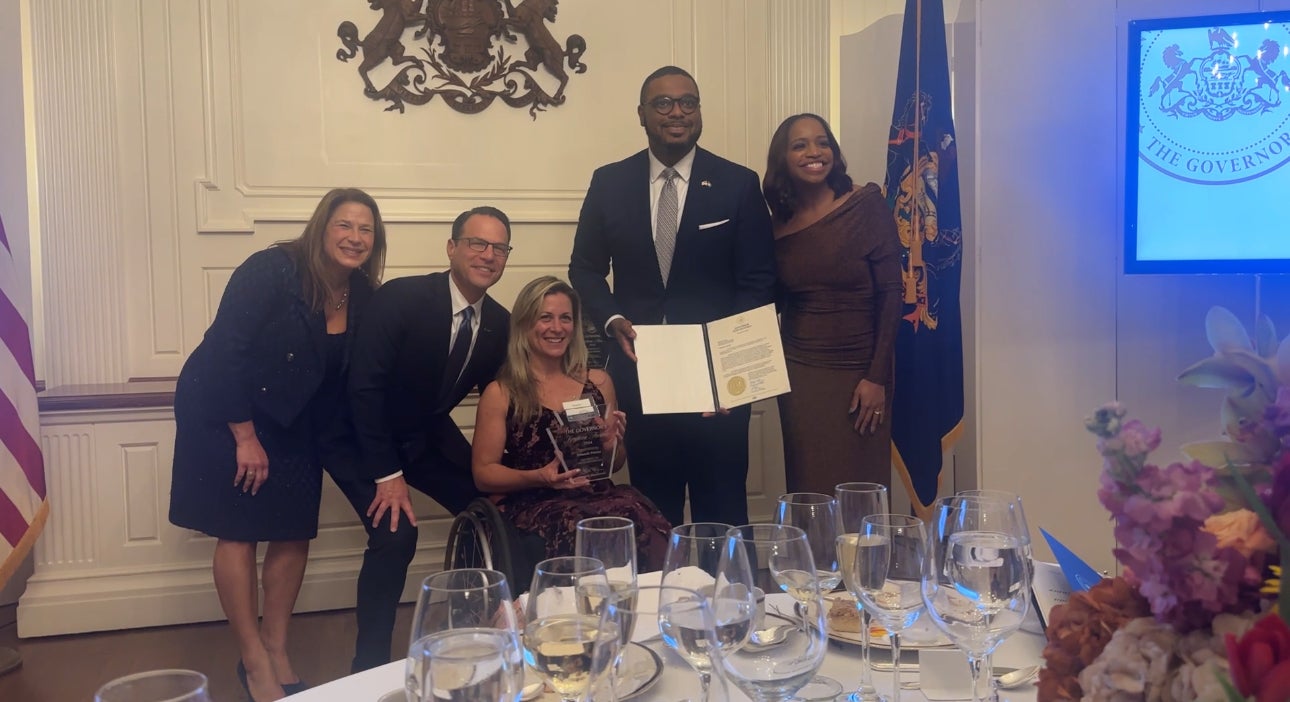
Her advocacy now includes fighting for gun violence survivors. She collaborates with Moms Demand Action, serves on the Pennsylvania Governor’s Advisory Commission for Women, and was recently recognized by Gov. Josh Shapiro for her work.
“It’s really important that I share my voice,” she says.
Family, friendship, and a future redefined
Through it all, Parezo has found strength in unexpected places — including her friendship with Alexandra Hackett. The two grew close through Hackett’s work documenting Amanda’s recovery and have since become chosen family.
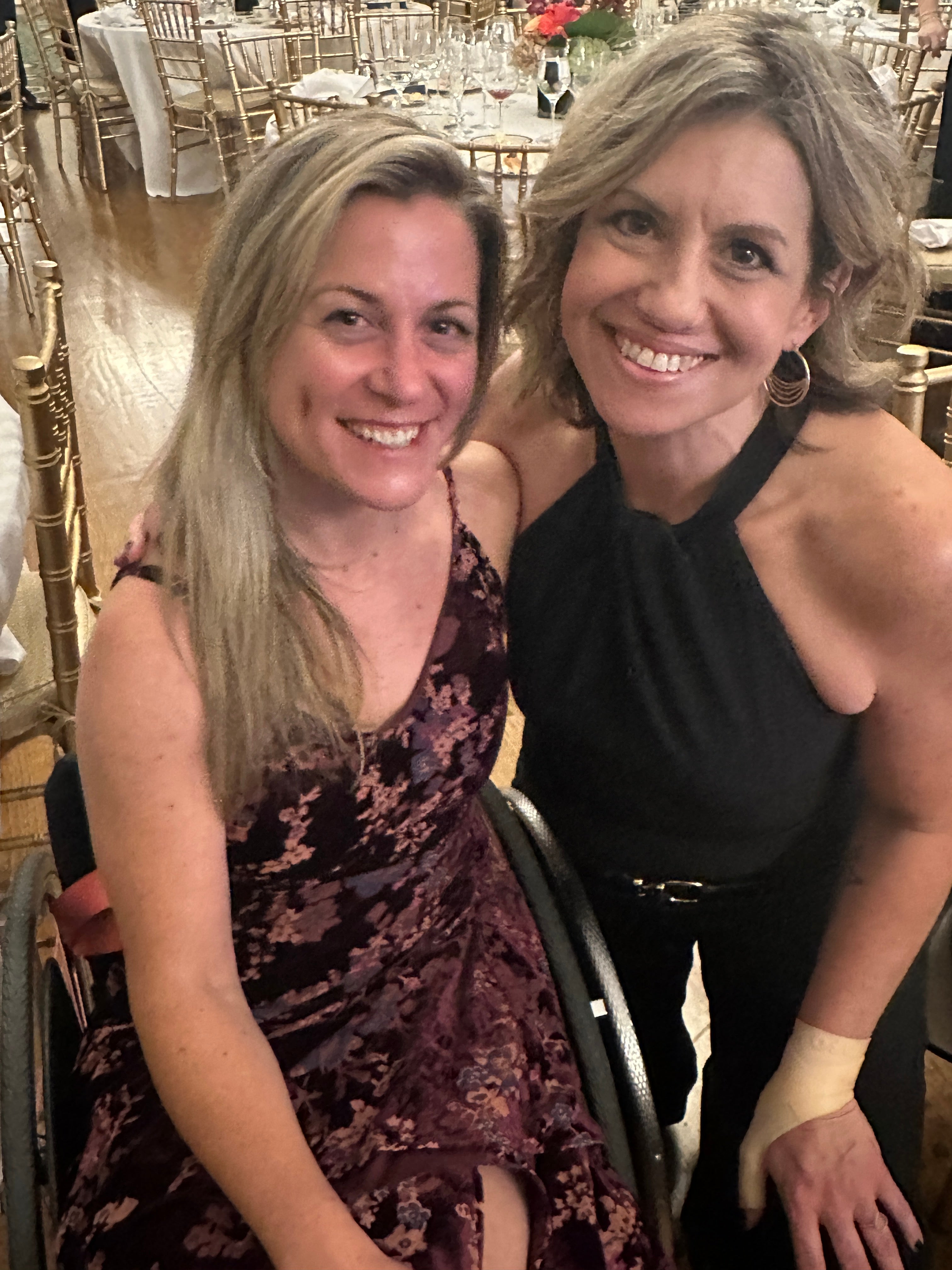
“She’s part of my family now — my family and friends, really,” Parezo said with a smile.
For Hackett, who nominated Parezo for The Good Souls Project, that bond only deepened her admiration.
“That’s who she was before this happened,” Hackett said. “The tragedy didn’t change her — it illuminated the good soul she already had.”
Today, Amanda Parezo continues to teach, advocate, and inspire — living proof that resilience can grow from pain, and that one person’s persistence can ripple across an entire city.
“I live day to day,” Parezo said. “I don’t know what’s going to happen — but I know I can still make a difference.”
If you know someone who embodies compassion, generosity, and service, nominate your Good Soul at whyy.org/goodsouls.
WHYY is your source for fact-based, in-depth journalism and information. As a nonprofit organization, we rely on financial support from readers like you. Please give today.




